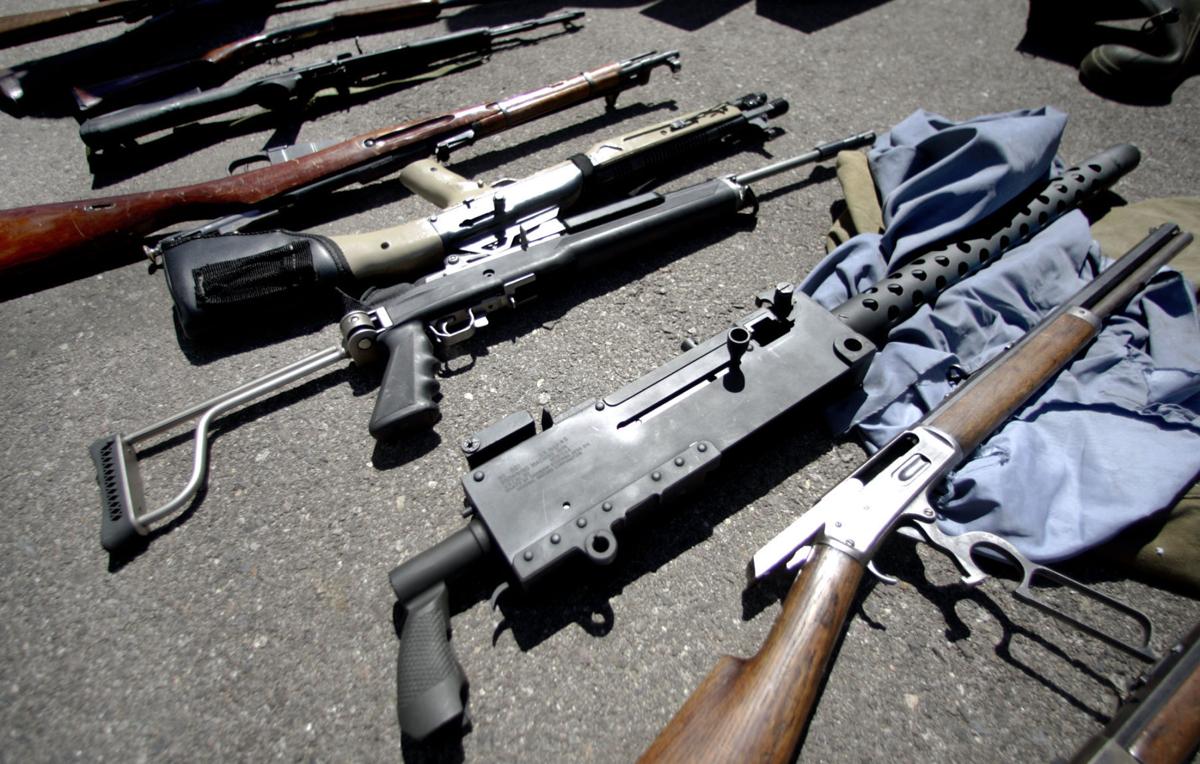PHOENIX — Attorneys for the city of Tucson go before the Arizona Supreme Court on Tuesday, Feb. 28, in a bid to void a state law that seeks to punish the city for its gun-destruction policy.
The lawyers contend the Legislature has no right to tell any city that it has to sell guns that are seized or surrendered instead of destroying them. Tucson wants the state’s high court to rule that lawmakers cannot use the threat of the loss of millions of dollars in state aid to effectively coerce elected City Council members to act a certain way.
What the justices decide will have effects beyond the immediate fight. It could determine how much legislators can impose their will on cities.
Attorney General Mark Brnovich sued Tucson under a 2016 law that says local governments that run afoul of state limits have a choice: Repeal the ordinance or forfeit state aid, which in Tucson’s case amounts to $170 million.
The fight is over a 2005 ordinance that says the Police Department, after it seizes a handgun, “shall dispose of such firearm by destroying the firearm.”
Brnovich said that runs afoul of a 2000 law that prohibits local governments from enacting any ordinances dealing with the acquisition, licensing, registration or use of firearms. More specific is a pair of 2013 laws that bar law enforcement agencies from destroying operable seized firearms and directing they instead be sold.
When the Tucson City Council refused to rescind its ordinance, Brnovich sued. The Tucson council has temporarily suspended the gun-destruction program while the issue plays out in court.
Brnovich contends that issues of gun regulation are a matter of statewide concern. And he argues there is no right of cities to get state aid, especially if they are flouting state law.
But Rick Rollman, Tucson’s lead attorney, says the 2016 law amounts to illegal coercion of local officials to abandon measures they adopt in what they believes is in the community’s best interests. And he notes that Tucson and 17 other communities are charter cities with a constitutional right to set their own policies on matters of strictly local concern, including the disposal of seized firearms, no matter what the Legislature says.
The case has attracted the attention of the National Rifle Association, which is claiming in its own legal briefs that Tucson’s policy is designed to “deliberately suppress” legal gun ownership in the whole state and “will likely lead to an increase in violent crime and harm public safety.”
NRA attorney Mick Rusing says the Tucson policy reduces the supply of firearms, making them more expensive to acquire. And Rusing says “a mountain of empirical evidence supports the legislature’s judgment that Tucson’s efforts to eliminate as many lawful firearms as possible would ultimately increase the rate of violent crime.”
There’s a threshold issue for the high court to decide: the legality of a provision in the 2016 law that Tucson post a bond of half its revenue-sharing funds as a condition of even being able to fight Brnovich’s attempt to withhold all of it.
Rollman says the city doesn’t have that much money on hand. Beyond that, he calls it “an unconstitutional filing fee” designed to keep cities from challenging actions by the attorney general.





